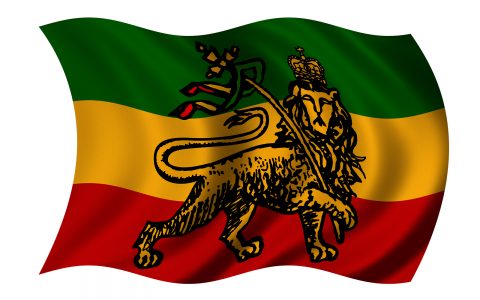For new members of Islam it may be difficult getting accustomed to the ways of the culture. One thing that I find is discussed over and over is private part hair removal in Islam. Islam is one of the biggest biggest religions known to man. It has almost 2 billion members.
With Judaism and Christianity following close behind. There are five pillars of practice within Islam. And members of Islam must practice these five pillars in order to be considered Muslim. But they also have strict hair practices also. Just like a few of the other religions, I’ll get into later.
Hair removal in Islam is difficult. Some parts of the body restricted from shaving because shaving is haram. And haram is to go against the practices of Islam. So, I’ll be describing what is haram and what is not. You’ll learn if waxing is haram, or if shaving ones beard can be haram.
Here are a few questions that may arise when about Islams hair removal options.
Is waxing haram in Islam?
First off let’s get the definition for HARAM out the way. If you don’t know it basically it’s when a person decides to mutilate their body, this action can be deemed unlawful in Islam. But what type of mutilation. Basically HARAM is “ACTIONS FORBIDDEN BY LAW.” On the other hand, you may hear of the term HALAL.
This term “Halal” means lawful or permissible under Islamic law. Fortunately, Islamic hair removal doesn’t fall under Haram. So you are fine. You can wax and clean the hair of your body.
It’s not forbidden, it’s recommended for Muslims to do so. It’s recommended because hygiene is an important thing that is recommended throughout Islam. But it can be Haram if let’s say you are getting a wax treatment done. But you have to go to other people to have it done. And this is not the way in Islam.
Also if it is or becomes harmful to the body then it’ll be forbidden. If you’re apart of Islam and plan on removing the hair on your legs and arms is fine. Go ahead. The Shairah or Sharee’ah (Islamic law) doesn’t state anything about it. It is allowed to clean the hair on your arms or legs or even remove it.
Is it haram for a man to shave his beard?
Unfortunately, it’s Haram to shave your beard in Islam. There are a number of scholars in Islam that state keeping of the beard is obligatory since the prophet had ordered Muslim members to grow their beard. It’s Haram since the Saheeh Ahaadeeth states it clearly. Stating a message from the messenger of Allaah said to “cut the mustache and let the beard grow.”
You may find other Hadeeth (the words, actions, approvals and/or attributes that have been narrated by the messenger) may state or convey similar things. Which they basically want you to leave the beard as it is and let it grow without interruption. No shaving, plucking or cutting. Nothing.
There are aspects regarding your beard in Islam. It’s apart of the male anatomy that is beautiful and beautifies the man. It gives the man a certain respectability and adorns him. Its one of the natural biological characteristics of the male gender on a human being. Allah made the beard a feature of the male that will flourish and continue till the day of reckoning.
Shaving of it is considered unlawful. The person can be punished since it may be regarded as a sin.
Can a man remove his pregnant wife’s pubic hairs?
It is allowed. But shied upon in the Islam religion if its another person. The wife isn’t supposed to go to no one other than her husband for such purposes. So her HUSBAND can remove her pubic hairs. Anyone else is no good.
Is it necessary to remove pubic hair after every menstruation in Islam?
Removing your pubic or armpit hairs are encouraged with the religion. But it is not against nor is it enforced at the end of the woman’s period.
Is it compulsory to remove pubic hair in islam?
Yes it is. But only for above and around the private parts.
Is it Haram to shave body hair in Islam?
The messenger of Allah believes that men are to trim their mustaches, and women can remove any unwanted hair from either their armpits or pubic region regularly. There isn’t any description in the Quran or the Sunnah that can prohibit the man or woman from removing excess hair from their arms, legs, chest, or back. They can use either form of waxing, shaving, clipping, or even depilatory creams.
At What Age Should Pubic Hair Be Removed in Islam?
The practice of removing hair for children in Islam is when they approach the age of puberty and when you believe that their hair has started to grow. But while they are approaching this puberty, the reinforcement of takleef should take place.
They can use whatever method of hair removal they prefer as long as it doesn’t cause harm.The pubic hairs is removed due to the sake of tahaarah (accountability). Another meaning for this would mean purity. The pubic hairs can be removed due to cleanliness and good health.
It is necessary for every adult to keep their body clean and remove pubic hair or armpit hair. And can be removed by any method they feel comfortable. So that adult phase according to Islam is when they start PUBERTY.
Religion’s effect on hair removal
Religion shapes people’s lives, their beliefs, and their future. One of the biggest religions in the world known as Islam does this. Some religions are stricter than others. Especially when it comes to hair removal. It can be against the religion to remove hair and in other instances, it may be regular occurrence depending on reaching an age limit, or family member/spouse death.
Islam Hair Removal
Muslims, on the other hand, are not against hair removal. To them, it’s a part of overall purity and cleanliness. They trim their nails, remove armpit and pubic hair. Both the men and women can remove their armpit or pubic hairs within a time frame of 40 days.
Leaving hair to grow beyond the 40 days can be disrespectful and sinful.
The women, if they have unnatural facial hair growing, they can remove it. But aren’t allowed to shape or reform their eyebrows. The pubic hairs, anyone can cut, trim, or remove theirs completely by whatever means they like. As long as it isn’t harmful to that person.
There are subgroups of religions. And Islam has The Hanafi branch. This branch includes the Sunni Turks. They order you to remove hair from every part. So, you are basically a hairless person. Men use razors and a variety of hair removing pomades. Women use sugar wax and herbs to remove their body hair.
One can remove one’s pubic hair by any means that is not harmful to one’s private parts and it’s not painful. Thus, it would be permitted to pluck, trim, shave, or use any other safe method of removing hair.
Going to a salon to get a wax would be a BIG NO, NO. Since you are not supposed to expose yourself to another man nor woman. Because in Islam is against the religion to for one man to have his privates exposed to another man. Same goes for the women.
Here are a few religions I’ve done some research on regarding their hair removal options

Sikhism
So, India, there are a lot of people who practice Sikhism. Sikhism came from the Punjab region of India around the 15th century.
Both men and women who are practicing the Sikhism religion are supposed to avoid cutting their hair. No excuses. It is believed by Guru Gobind Singh, who happened to be the last Sikh guru, that the “human body when in its natural form, that is when it’s preserved the best.”
So, going off this belief he instilled this rule into the religion. It is now a part of the Sikh code of conduct, that will prevent women and men from tampering with their natural born hair.
Fortunately, there are no consequences for tampering with your hair. But it is a sign of disrespect towards the religion.
Now, certain Sikh believers are against this. Saying such things as “these codes of conducts are century old beliefs and shaving or waxing doesn’t make me a sinner.” In fact, many Sikhs who reside here in the states. Go against the rules of conduct due to aesthetic reasons and societal pressures. So, they are against cutting or shaving of body hair. In case Sikhs are forced to act in some manner against their religion, they’ll carry a dagger for protection. They have some sort of ‘anti-depilatory taboo” possibly due to depilation relation with the Hindu caste system.
Hair removal in Hinduism
Many Hindus mostly indulge in hair removal of the head. They shave their head. The hair removal of the head has a huge significance to the religion than other types of hair removal.
Once they become 4 years of age, the children go through a ritual of head shaving. Humbleness, devotion, and confronting one’s own ego comes along with this ritual. The children’s treatment increases to a level of holiness, great respect, and innocence.
As for the men and women, when an elderly person passes away in the house, men shave their heads. When women are widows, their head is shaven. I’m not entirely positive that Hindus indulge in any hair removal on other parts of the body.
Hair removal in Jainism
Jainism aka Jain dharma is one of many of Indian ancient religions. The monks practice what is called “kaya klesh,” every hair is pulled on the face and scalp until you are bald. Other names I’ve researched for this ritual are Kesh-lochan or Loch.
The ritual is acted in front of the community.
They begin the process spreading ashes onto their head and pluck out each strand of hair. If saint’s hair is being plucked is either too old or weak for the ritual, the saint will have to ask for help from someone.
Why do this? Plucking hair must be painful. This is a hair removal method I would be against.
But the Jainism saints trust their beliefs, so much that they believe it teaches the endearment of pain. They take this ritual to instill in people the motivation to give up worldly belongings and for themselves also.

Hair removal and Christianity
Male hands praying holding a rosary with Jesus Christ in the cross or Crucifix on black background. Mature man with Christian Catholic religious faith[/caption]
Christians can shave their hair as they please, but the strict hair removal rules may only apply to ones who practice tonsure. This was in Roman Catholicism. The tonsure was for inducing a man into the clerical order. So, the middle of their scalp was shaved. This left a ring of hair around their head.
This ring of hair is left to resemble the crown that Jesus wore as he was crucified. So, you’ll find this tonsure in some roman catholic and Christian churches.
Modern day churches may be really strict and will say things such as “vanity is a sin.” Vanity can be considered a sin if you waste money on something to look better. So, I guess hair removal can be a part of that unless you get it for health purposes.

Buddhism and hair removal
Buddha statue with incense. Deity and symbols of Buddhism. The practice of Buddhism and its symbols. Spiritual life of Asia[/caption]
If you are a monk practicing Buddhism, then expect to be required your head shaved, along with your face and eyebrows. A Buddhist monk is supposed to shave their head, so they can mimic Siddhartha. Siddhartha is the prince that later transitioned into Buddha.
The head shaving is a necessary part of one becoming a monk. The ceremony is to renounce from the ordinary life and all its false pleasures. this is the process one must go though. You’re renouncing all desire based lifestyle and enter a monastic type of lifestyle. this lifestyle is for the entry into Buddahood.
The reason they do this is because of his story. In his story, Siddhartha left his palace in search of a way to relieve suffering. The way the story goes is that the first thing he did when he left his palace was shaved his own head and face. A Buddhist monk will have this hairless look by having a shaving routine, they’ll be able to focus more on the world and enlightenment than on their superficial self. This is required when they go through their ordinance.
Boys also have a shaving ritual. But it is located in Burma and is somewhat like the Hindu version.

Rastafarianism and hair removal
In the Rastafarian belief system, hair removal is a big NO, NO. The belief system is known by its members for having dreadlocks. They are prohibited from cutting hair. Since the hair is a representation of the lion’s mane. This man is a symbolization of Africa and the lion of Judah. They also serve to distinguish one’s self-form that of the white man and the establishment that the white man has created. They also believe their hair is strength and the longer the hair, the stronger they are.
Conclusion: Every religion has an affect on how you remove your hair. It’s just the way they do things. Some are more profound than others. So if you plan to practice maybe one of these religions then plan to follow along with their practices down tot he “T.”
A few references for you
https://blogs.wsj.com/indiarealtime/2012/09/29/are-sikh-women-allowed-to-wax/
https://www.executive-shaving.co.uk/shavepedia.cfm/shave_ID/278
http://tarunkranti.50webs.com/keshlochan.html

